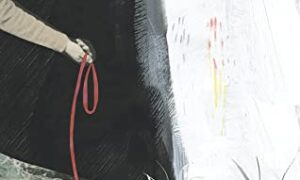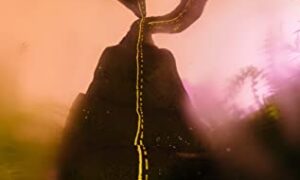 The Late American Novel: Writers on the Future of Books by Jeff Martin, C. Max Magee
The Late American Novel: Writers on the Future of Books by Jeff Martin, C. Max Magee
My rating: 4/5 cats




to know me at all is to know my opinion about e-readers. i’m an old sentimental fool when it comes to books. i like to see them stacked all over my apartment, like friends. or more specifically like my goodreads.com “friends”—many of these books are here and i know nothing about them except i brought them into my space because at one time i thought they would be interesting or useful, and then a lotta them just stood around silently.
but i like having them here
i like their potential.
sure, i could probably put most of these books on an e-reader. i could have my very own nook. and it would have all of my friends accessible inside of it. but then, how would i choose?? i like not knowing which book i am going to read next. i like browsing through my home-stacks as though they were part of a library or bookstore—picking them up, holding them, carefully selecting which one i will read next, drawn to their color or some other part of their physicality that is speaking to me at that moment—remembering where i bought each volume and what was going on in my life at that time that would have led me to buy such a book. it is a sentimental and nostalgic journey for me that scrolling through a typed list could never replicate.
besides—i have seen my netflix queue—i know the madness of which i am capable. if you give me the chance to just click things and add them to a list—there are going to be a lot of poorly made choices. and i won’t ever delete them, because it feels so final. there are movies i have been pushing down my netflix queue for five years now. and with books it would be even worse—i would add them in a fit of optimism or whim and then they would be there…always…trapped and unread. it’s too casual a relationship to books for me. i like my way better, even though it is all going to collapse one day and send me tumbling into my downstairs neighbor’s apartment, and he already doesn’t like me, so there will be frowns and fist-shakings.
but the book.
this is a collection of twenty or so authors discussing the rise of the machines and the future of book-as-objects and the quality of literature. it is definitely food for thought, and i recommend this to anyone in the business of books.
some essays present a very positive future in a world where the e-reader is king, some are shrugged neutrality, but my favorites, naturally, are the ones full of paranoia and animosity.
lauren groff’s is probably my favorite, with her 16-point essay Modes of Imagining the Writer of the Future, my favorite of which is number three:
The writer of the future will sell her wares on the dog-crotted sidewalks of city streets, desperately flinging open her trench coat to reveal advance reading copies, braving the disgusted or averted faces of the more respectable kinds of pedestrians to whom french flaps or deckle edges mean nothing even remotely titillating.
that future is no future for me.
but i like other essays, too—particularly joshua gaylord’s Enduring Literature, which is full of great distinctions
Maybe liking books is different from liking reading, the two things only arbitrarily related by their physical proximity—a proximity becoming increasingly less common. And maybe it’s possible to be an aficionado of one without the other. Maybe books and reading should, ultimately and always, be considered separately.
i have a weakness for both books-as-objects and reading, but i understand his point, and i have plenty of books here that are just here for show: my collection of jonathan carroll in greek and japanese, my multiple “pretty” copies of jude the obscure and wuthering heights…
but he’s still totally on my side of the fence:
In my more pessimistic moments, I see it as a gradual softening over time. Not as a dumbing down—I don’t see the world becoming less intelligent or intellectual, but rather simply less patient. In my most dystopian nightmares, I picture literature packaged so conveniently that you could consume it like a vitamin pill—without even having to take the trouble to read it.
there is a young’un who works in a bookstore who was overheard saying how “reading takes too much time,” and he would rather just watch a video of a book.
not even a movie.
a video.
i know it is a generational thing, although he can’t be more than fifteen years younger than me, but it is worth considering people like this when contemplating the future of books.
which is why i appreciated tom piazza‘s curmudgeonly Interview. it made me laugh and groan with recognition:
…I like books that I can hold in my hand. Made of paper. I don’t need to plug them in, and I don’t have to buy batteries for them. They look different from each other, and I like that. I like looking at Bleak House and being able to tell that it embodies a different sense of life than Jesus’ Son does. I like carrying the fuckers around with me. One weighs more than the other. If you like to read your books on an etch a sketch, that’s fine with me. Especially if you’re reading my books. But it’s like looking at a book of paintings where Guernica is the same size as a Holbein portrait. You get no sense of the scale of things, of the nature of the author’s ambition.
and this statement doesn’t strike me as an elitist qualitative opinion, i think it is more one about scope and effort. after finishing bleak house, you can hold it in your hand and think “that was a massive book and i read it.” when i see all my prousts lined up, i can say: “i did it—yayyy!” the experience doesn’t translate to an e-reader. and maybe that isn’t important to other people, maybe they have other ways in which to measure their self-worth. me, i do not. so i gotta look at all my books to feel good about myself.
more from piazza:
The computer is neutral in that it gives you access to limitless amounts of information, but the one requirement is that you have to get it on the computer. The information has no smell, no weight, no texture. Nothing that seriously impinges on your reality. People think it represents some kind of democratizing of information because everything’s the same size. But democracy is when things of different sizes get a chance to mix it up and work it out, measure themselves in their respective strengths. If everything is the same size, there’s no perspective.
well-put.
and a good way to end this “review” rant.
except to say—if the technology gods are listening, and if they heard me last week in my head as i was moving seven different sections around in the library—huffing and sweating and allll alone—if they heard me say, “this would be easier if this shit was all on a kindle”—disregard it. you have not won me—it was a moment of weakness and selfishness and exhaustion.
i have not been broken.
read my book reviews on goodreads







